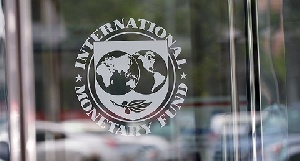Business News of Friday, 6 July 2012
Source: BFT
Ghana adopts trade war
Over 34 countries have been identified as hurting from various trade measures instituted by the government to protect its local industries.
The measures, which are five in total, have been classified as protectionist strategies geared towards protecting indigenous industries from foreign competition.
The country’s seemingly protectionist measures include the 5% import levy on poultry and textiles, the re-introduction of airport tax and certain import duties on rice, wheat and cooking oil, as well as increase in withholding tax on Foreign Service providers to 15 per cent.
Simon Evenett, the head of Global Trade Alert- a trade monitoring service- supported by the World Bank, DFID and other global institutions, told the B&FT in an interview in Accra that the trade measures follow a global trend in trade policy formulation ,designed to shield local industries from the influx of foreign companies, and give the locals undue advantage.
Mr. Evenett was in the country on the invitation of the Africa Centre for Economic Transformation, which is concerned about the growing protectionism measures being undertaken by many countries in the world in the face of the global economic meltdown.
Some analysts are of the view that as other countries adopt tougher protectionist stance, the country should attempt to be the standard bearer by adopting a less stringent measures that expose its fragile local industries to foreign dominance, until such a time that the economic conditions are right for outside competition.
However, Mr. Evenett, who is also a professor at St Gallen University in Switzerland said: “This is where we have to be very careful because the difficulty with protectionism is that it is never temporary. Protectionist measures are first conceived as temporary measures, but they take a long time to unwind.
“Most industries always ask for temporary help from government but they end up being permanent.
So the government must resist any pressure from lobbyists to put in place protectionist measures, and instead assist and encourage local industries to be able to compete on the international market with other global companies’’.
“The bottom line here is, if firms must be made competitive in the long run, don’t start restricting outside competition. Make them compete more”
The country’s poultry and manufacturing sectors especially the textile industry are currently the worse hit sectors of the economy ,following the influx of cheap imports that threatening the survival of indigenous industries.
Over the past four years, the real GDP growth rate of the manufacturing sub-sector of the economy has declined from 3.7 per cent in 2008 to about 1.7 per cent in 2011, the poultry industry experienced fluctuating growth rate.
Mr. Evenett advised that long-term projections in the fall in price of goods should inform businesses in the sector(s) to exit rather than seek government protection to protect their territory.
“Often it is more of a financing problem than trade competition and so fix those problems that the firms are facing,” he added.
Professor Evenett who has accused developed countries of being equally guilty of instituting protectionist measures in their economies has raised doubts about the commitment of the group of 20 developed countries in the world (G-20) to fight the incidence of protectionism in global trade in order to protect the global trade system.
“The G-20s were the ones who said they were going to curtail protectionism. But they have gone ahead and instituted protectionist policies.
“Every year protectionist measures which are general to the G-20s, have gone up from 60 per cent to 2009 to 79 per cent in the year-to-date this year. So they are not walking their talk. Fighting protectionism is just a debacle for the G-20s,” he said.










